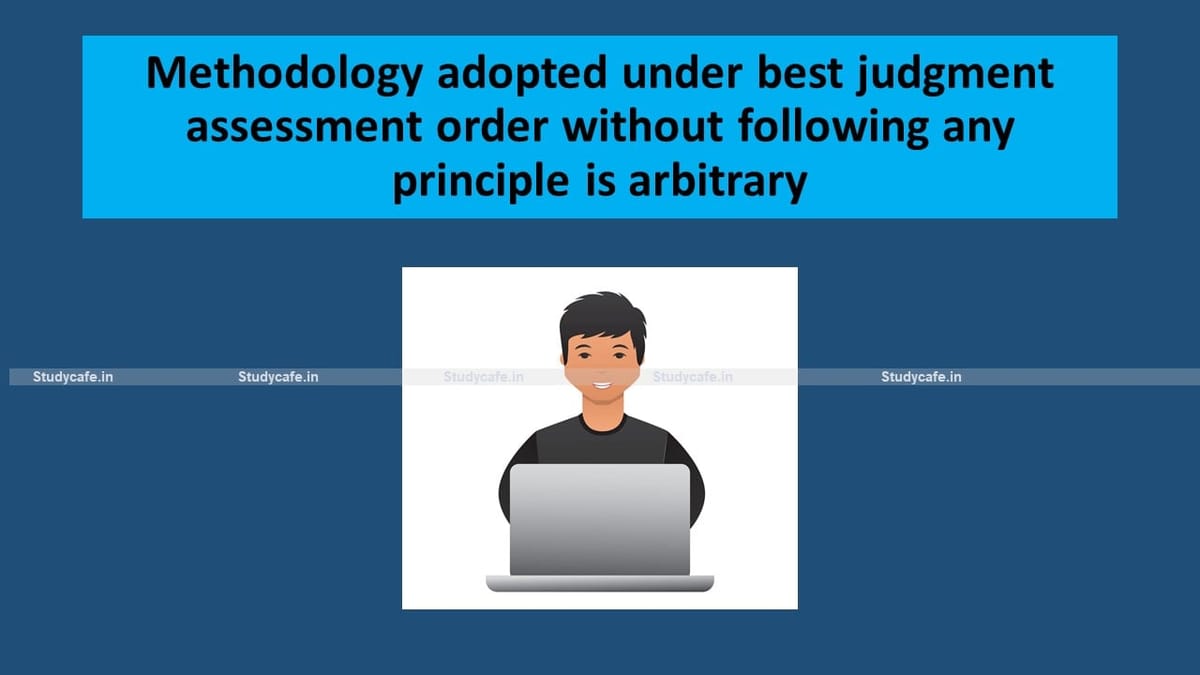CA Bimal Jain | May 26, 2021 |

Methodology adopted under best judgment assessment order without following any principle is arbitrary
The Hon’ble Telangana High Court in case of M/S Golden Mesh Industries v. Assistant Commissioner State Tax [W.P. No. 7789 of 2021, dated March 31, 2021] set aside the best judgment assessment order passed for non-compliance with the request to file GSTR-3B return, by the Assistant Commissioner under Section 62 of the Central Goods and Services Tax Act, 2017 (“CGST Act”), being prima facie arbitrary and contrary to the provisions of the CGST Act. Remanded back the matter for fresh consideration and directed the Authority to pass a reasoned order w.r.t. levy of tax, interest and penalty, in accordance with the law.
Facts:
M/S Golden Mesh Industries (“the Petitioner”) did not file Form GSTR- 3B return for the month of November 2018, for which a notice dated January 29, 2019 was issued to the Petitioner by Assistant Commissioner State Tax (“the Respondent”), stating to file return within 15 days otherwise tax liability will be assessed under Section 62 of the CGST Act based on relevant material available with the Respondent along with interest and penalty.
The Petitioner did not file the return within aforesaid time limit, and subsequently the best judgment assessment order dated December 27, 2019 (“Impugned order”), was passed by the Respondent determining the tax liability, by multiplying by 3 times the monthly average SGST tax of ₹ 1,50,000/- and levying 100% penalty. Meanwhile, consequential attachment orders/garnishee orders were also issued by the Respondent and its officials.
Being aggrieved with the Impugned order passed by the Respondent, this petition has been filed.
Issue:
Held:
The Hon’ble Telangana High Court in W.P. No. 7789 of 2021 dated March 31, 2021 held as under:
Relevant Provisions:
Section 62 of the GST Act:
“Assessment of non-filers of returns
62(1) Notwithstanding anything to the contrary contained in section 73 or section 74, where a registered person fails to furnish the
return under section 39 or section 45, even after the service of a notice under section 46, the proper officer may proceed to assess the tax liability of the said person to the best of his judgment taking into account all the relevant material which is available or which he has gathered and issue an assessment order within a period of five years from the date specified under section 44 for furnishing of the annual return for the financial year to which the tax not paid relates.
(2) Where the registered person furnishes a valid return within thirty days of the service of the assessment order under sub-section (1), the said assessment order shall be deemed to have been withdrawn but the liability for payment of interest under sub- section (1) of section 50 or for payment of late fee under section 47 shall continue.”
DISCLAIMER: The views expressed are strictly of the author and A2Z Taxcorp LLP. The contents of this article are solely for informational purpose. It does not constitute professional advice or recommendation of firm. Neither the author nor firm and its affiliates accepts any liabilities for any loss or damage of any kind arising out of any information in this article nor for any actions taken in reliance thereon.
In case of any Doubt regarding Membership you can mail us at [email protected]
Join Studycafe's WhatsApp Group or Telegram Channel for Latest Updates on Government Job, Sarkari Naukri, Private Jobs, Income Tax, GST, Companies Act, Judgements and CA, CS, ICWA, and MUCH MORE!"